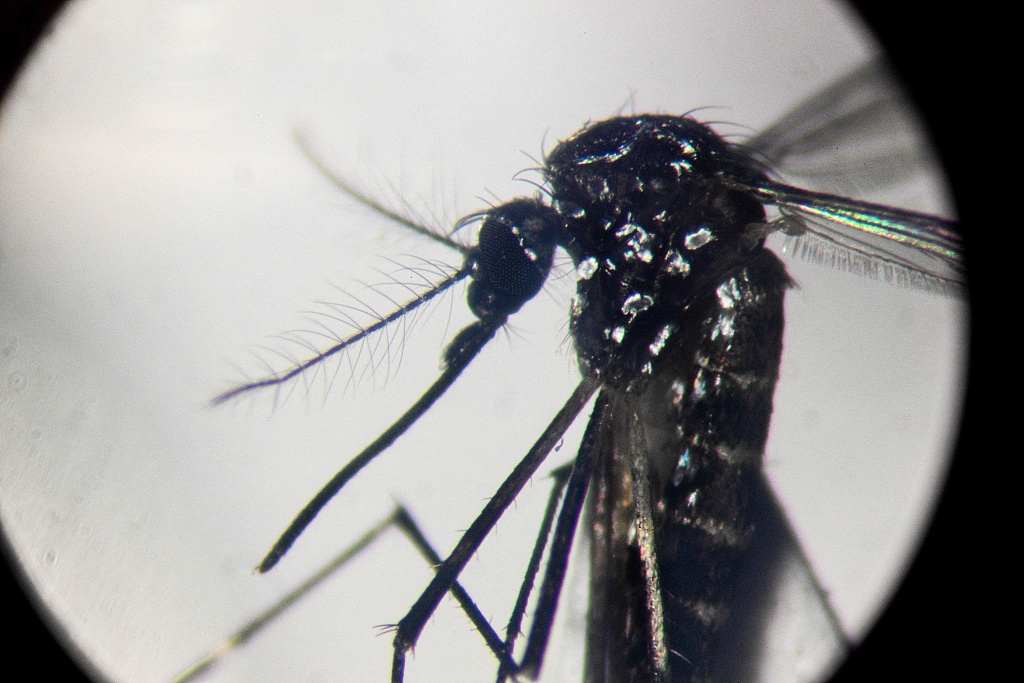The government of China may facilitate Uganda grow the Artemisia annua (sweet wormwood plant) herb from which the Chinese wonder anti-malarial – Artesunate is extracted, if the request made by National Medical Stores (NMS) board chairman goes through.
The Chinese envoy to Uganda Ambassador Zhanga Lizhong said Friday it was a “good proposal” Uganda and China can explore and work together on in an effort to develop drugs and improve health of their peoples.
The Ambassador was on Friday handing over a consignment of anti-malarials including Artesunate, Coartem and Deo-Cotexin worth over Uganda shillings 4 billion, following a request by the Uganda government.
Health Minister Jane Ruth Aceng and Finance minister Matia Kasaija received the consignment on behalf of Uganda Government in the presence of Ambassador Santa Laker Kinyera, the director of International Economic Cooperation at the ministry of Foreign Affairs.
The event took place at the NMS headquarters – Kajjansi in the presence of other NMS, National Drug Authority (NDA) and Health ministry officials.
NMS board chairman Dr. Jotham Musinguzi had in his speech shortly before the handover of the drugs consignment spoken of the efficacy of Artesunate and other Chinese drugs. He disclosed that the Chinese had for decades used the herb to effectively rein in Malaria, later advancing to the modern drug extracted from the herb and had effectively eliminated the disease from their country.
Dr. Musinguzi mused that it would help Uganda that suffers from a high malaria burden to grow the herb locally where the two parties can work together save lives of Ugandans and other vulnerable people in the region.
Ambassador Lizhong said it was good idea to which the two countries could extend and explore more cooperation. The two sides, he explained could cooperate in herbal research with China, a more developed economy bringing on board technology and expertise.
The environmental conditions in Uganda, he said were good to facilitate such an idea. “So why not work together?” the envoy mused.
He said he would encourage Chinese to work together with Ugandans and his country could help Uganda digitize its medical information infrastructure. His country, he said would continue to encourage its companies invest in the Heath Sector in Uganda.
He explained China and Uganda had a long history in herbal medicines and the Health sector in Uganda had great potential the two countries could explore.
The envoy said the drug donation was “rapid response to an urgent request by the Government of Uganda to address rising cases of malaria in Uganda” last year. The Ambassador who in political terms referred to Ugandans as “Brothers, partners and good comrades” said the donation was also in line with “Medical and Health Program,” one of the nine programs initiated by Chinese President Xi Jinping at the 8th FOCAC (Forum on China-Africa Cooperation – took place in Senegal, 2021).
He reiterated his country’s medical cooperation, which he said dated sixty years in Africa and fourty years specifically in Uganda. Uganda has received twenty-three Chinese medical teams, had hundreds of thousands treated including 4,000 surgeries free of charge through the period.
The Chinese government funded construction of the China Uganda Friendship Hospital in Naguru, which will soon be expanded to include a trauma unit.
Minister Aceng who extolled China’s hand in Uganda’s development effort commended China for the donation, saying she looked forward to setting up of a global herbal centre in Uganda.
She elaborated how Uganda remained on list of the top 10Plus1 countries constituting the global malaria disease burden, ten of those being in Africa and India being on the Asian continent.
She said Uganda was among the highest global contributors of malaria cases and deaths ranking third and seventh respectively or 5.4% and 2.9% respectively.
Nigeria and DRC lead the list. Uganda registered twelve million cases annually out of which 5,000 deaths result, making her a high risk country.
The minister explained Uganda had made strides in reducing the disease burden but 2020-2022 covid19 period saw reversals. The situation is most dire in East and Northern districts.
Expressing gratitude, the minister said the donation would not only address health but also cement the relationship between Uganda and China.
In the same vein, Finance minister Matia Kasaija said he was a survivor of the disease he suffered in his childhood but a sister who followed him was not that lucky.
Aceng publicly appealed to his colleague to be mindful when her ministry makes a request. She said the NMS needed shillings 3.5billion to do the distribution of drugs country wide and donors had at a Darak-Senegal conference told the high burden countries to find their own solutions by mobilizing resources domestically to deal with malaria.
NDA board chairman Dr Edward Bitekyerezo and the Progamme Manager – Malaria Control Programme in the ministry of Health promised the drugs would be used effectively and promised full accountability.
Bitekyerezo extolled the quality of Chinese human drugs and said, the Authority he chairs would would continue ensuring only standard and quality drugs enter the country and are on the market.

